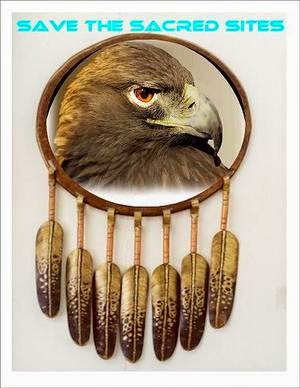Artifact hunters are desecrating the burial plots
Last week, in a sacred Tolowa Dee-Ni' site wedged between the farmlands of Fort Dick and the Pacific Ocean, 27-year-old Guylish Bommelyn buried an ancestor he'd never met.
The remains were found the week before, and bones, later identified by an osteologist as human, were mixed in with recently upturned soil within the gates of the Yontocket Cemetery in Tolowa Dunes State Park.
It was the work of grave robbers, or people known as amateur archeologists and treasure hunters, who illegally seek out tribal artifacts like arrowheads, pestles and cultural regalia either as a hobby or to fetch a few dollars.
"I feel sad just wondering why somebody would do something like this," Bommelyn said as he stood in the cemetery, looking at two freshly covered dig sites. "It's a great disrespect."
Yontocket Cemetery is an ancestral Tolowa Dee-Ni' burial site located off Pala Road in California State Park lands. It's on a grassy hill surrounded by a wooden fence, and there are no headstones marking grave sites. The only identifying markers are a couple locations where people have placed fake flowers in the ground or along the fence to pay their respects.
Bommelyn, who works in the Smith River Rancheria's Culture Department, said it appears the looters — who are unidentified at this point — used these flowers as a guide for where to break ground. While metal fencing has been installed a few feet underneath the soil to try to prevent such digging, the looters were able to break through this protective barrier along its outer edge.
"It's fenced off for a reason," Bommelyn said of the cemetery, "and somebody came out here with ill intent."
The cemetery is located on the Yontocket village site, which was the largest city of the Tolowa Dee-Ni' and a place where more than 400 American Indians were massacred by white settlers in 1853. Yontocket is listed on the National Register of Historic Landmarks, and is considered by the Tolowa Dee-Ni' to be the place where the world began.
"This is our axis-mundi," said Guylish's father, Loren Bommelyn, who met his son at the cemetery to survey the damage. "This is our Garden of Eden."
Bommelyn is a Tolowa Dee-Ni' tribal leader who is fluent in the native language and cultural traditions. He also holds a position on the Smith River Rancheria's Tribal Council, and is a well-versed American Indian historian and educator.
He considers the recent grave digging "sacrilegious," and said there seems to be a disjunct among those who think it's okay to seek out artifacts in tribal burial grounds because the same people would probably consider it taboo to uncover caskets in a place like the Crescent City cemetery.
"It's a designated area, and it has a fence around it and a sign on it," Bommelyn said. "It's just kind of disturbing and upsetting."
For some, searching for American Indian artifacts is a hobby, but for others it's a financial enterprise. On eBay, for instance, individuals auction off all sorts of cultural artifacts, from arrowheads to awls. While most of the bidding starts off at the low end — less than a dollar for an arrowhead — some items, like a stone pestle, can go for a couple hundred dollars.
"It's not a lot of money," Bommelyn said. "It's not like it's thousands of dollars like Egyptian gold or Inca jade."
According to tribal officials, there's been an increase in grave digging and artifact hunting throughout Del Norte County. In addition to Yontocket, there have been instances of digging or looting around Point St. George and Nickel Creek, which are both within the Tolowas' ancestral territory that stretches along the coast from Wilson Creek south of Crescent City to the Sixes River in Port Orford, Ore. and inland to the Applegate River.
"It seems like lately that people are out there digging around, and it's crazy," said Smith River Rancheria Culture Department Director Marva Scott, whose Tolowa Dee-Ni' name is Sii~-xuu-tes-na. "We're trying to understand it."
It's a punishable offense to excavate cultural artifacts from protected cemeteries and village sites. Last year, a Eureka man was sentenced to 30 days in jail after he was seen in YouTube videos digging up items from a Yurok Tribe burial site in Patrick's Point State Park. He initially faced up to a year in jail and a $10,000 fine.
"These items are important to stay within the burial sites because those are items that belong to those people," Scott said. "That's a representation of who they are."
The Smith River Rancheria is exploring options to prevent future excavations in the tribe's ancestral territory. Some of these might include posting signs around sensitive areas letting people know that it's illegal to disturb cultural sites by digging for artifacts or setting up monitoring devices to actually catch people in the act of looting.
Scott said the rancheria has already held educational workshops with local law enforcement agencies to inform officers and deputies about the laws that exist to protect cultural resources. A similar forum is planned for next month, she said.
"It's a big deal and we want it addressed," Scott said. "We want people educated and we want people brought to justice. And we just really want people to respect the things that they need to respect."
Subscribe to:
Post Comments (Atom)






No comments:
Post a Comment
Note: Only a member of this blog may post a comment.